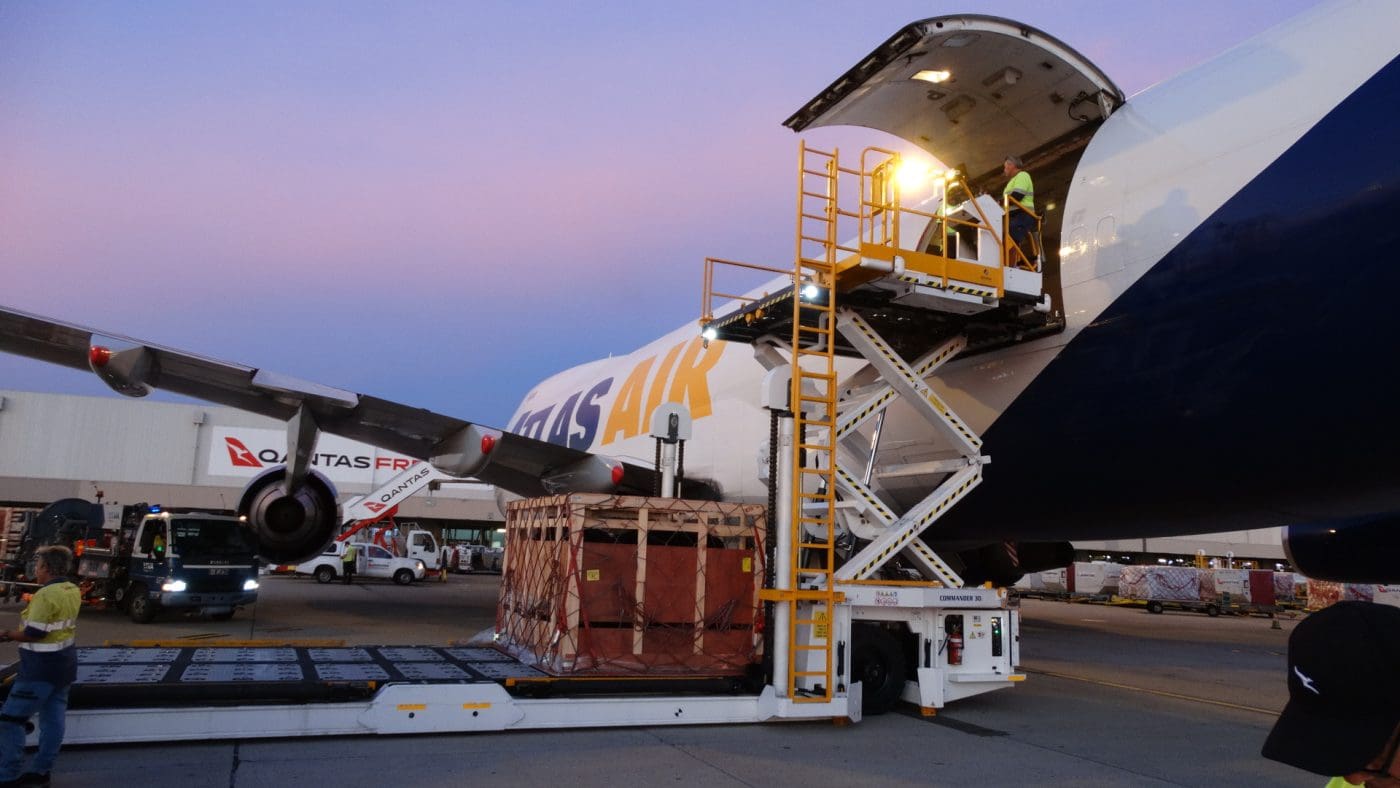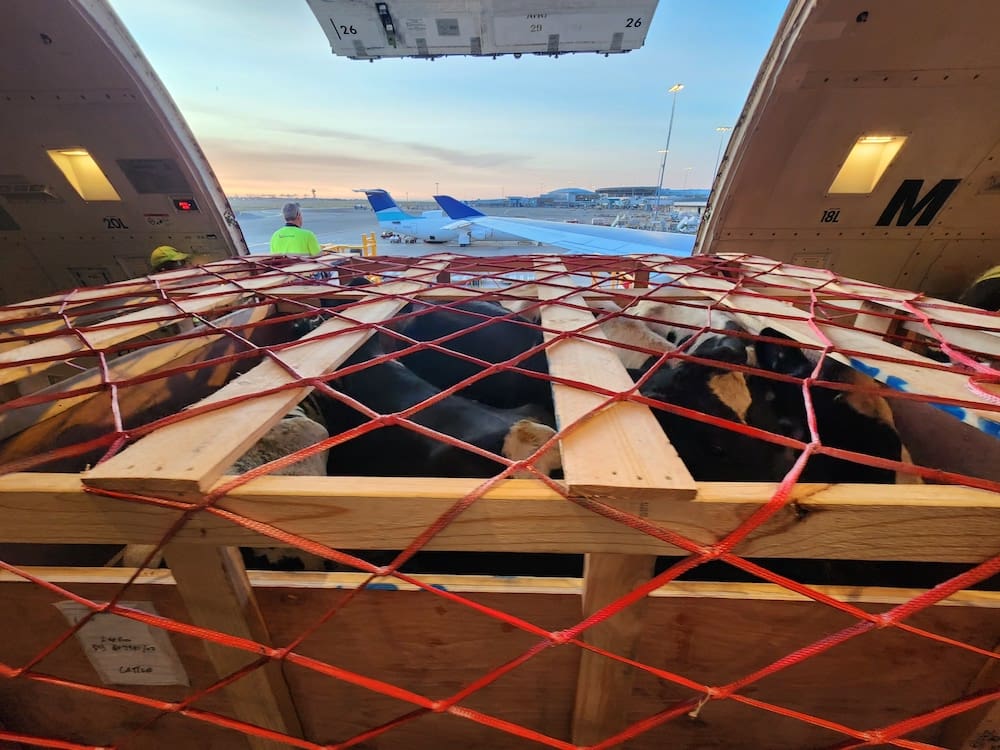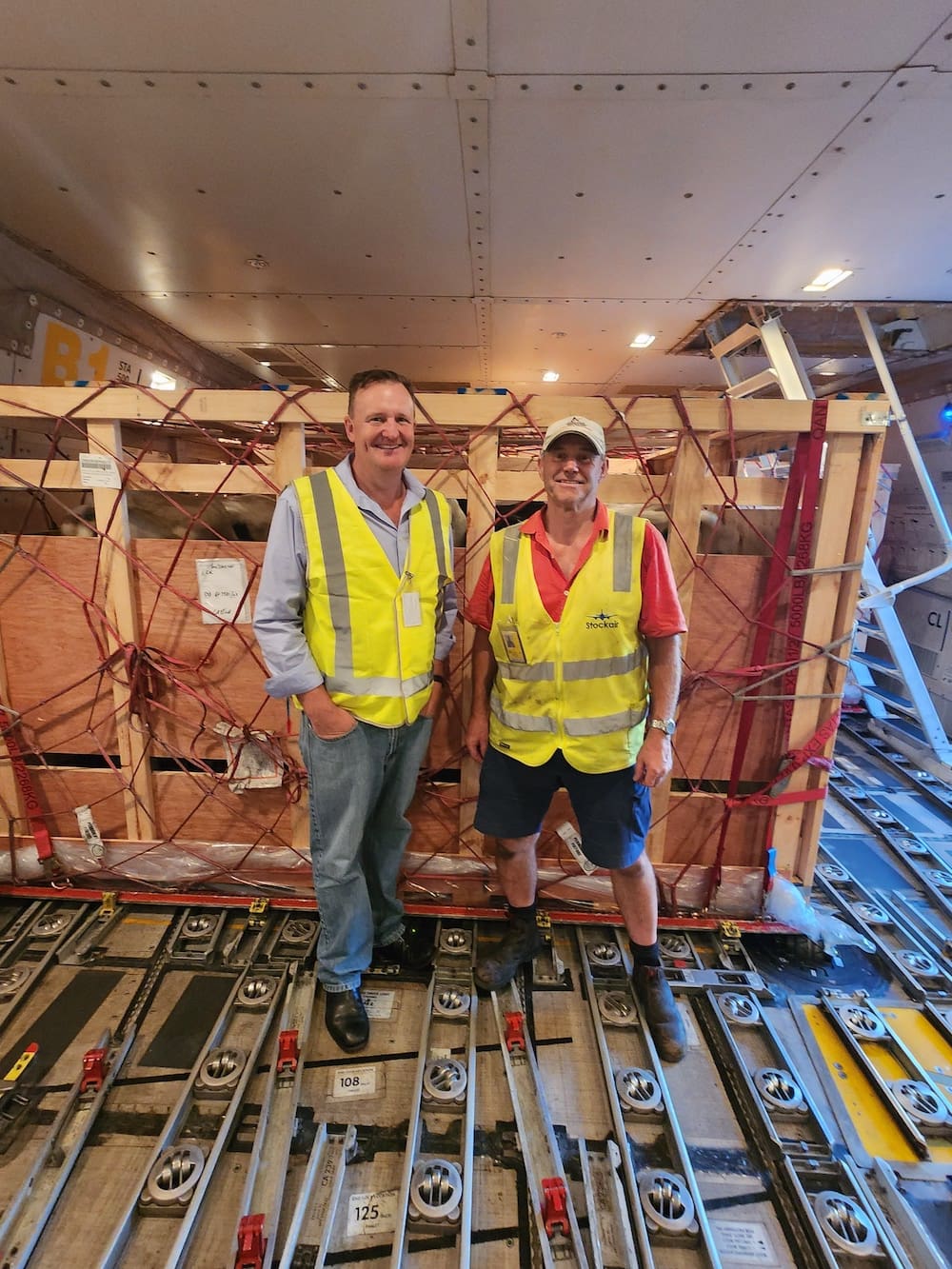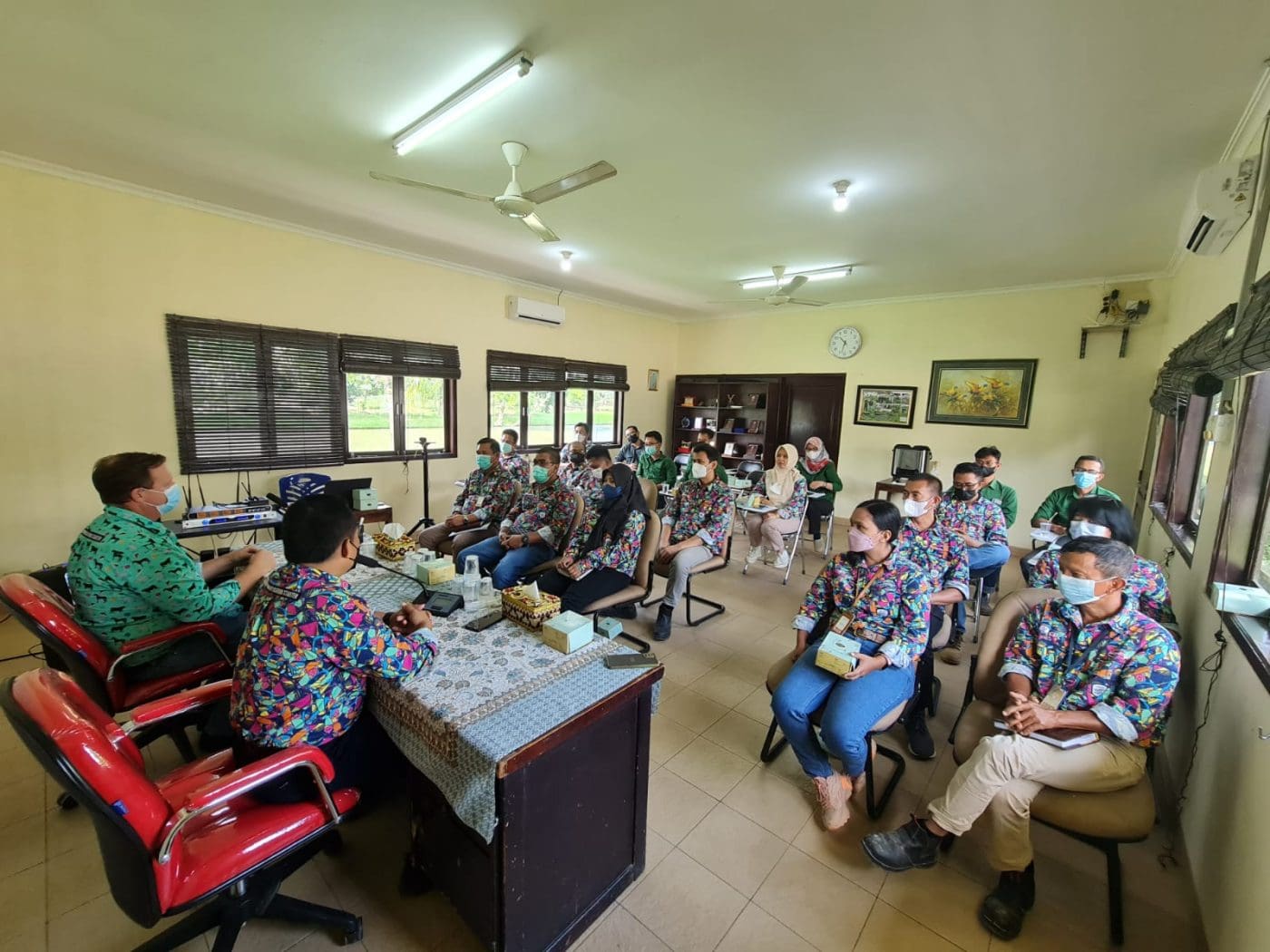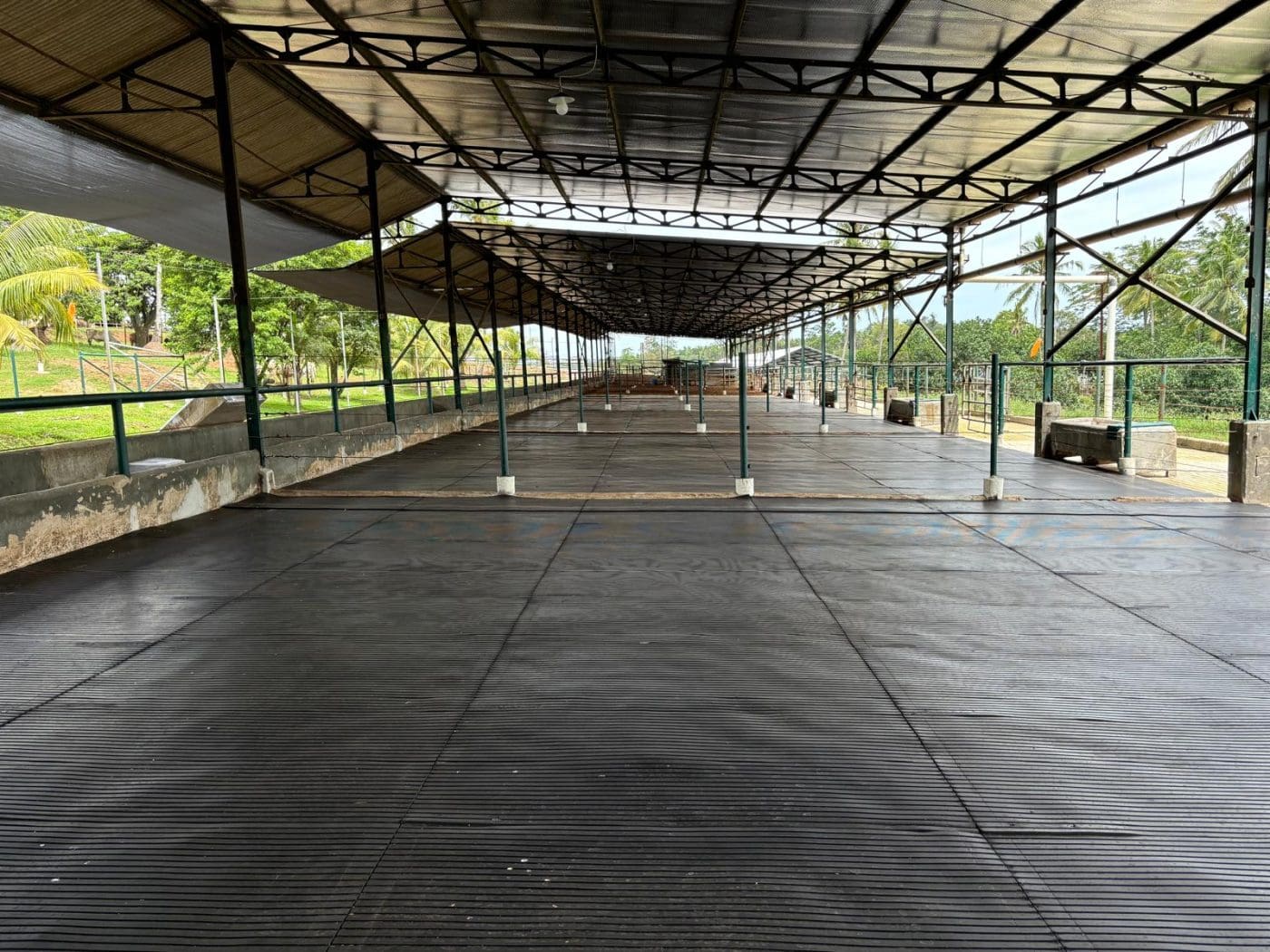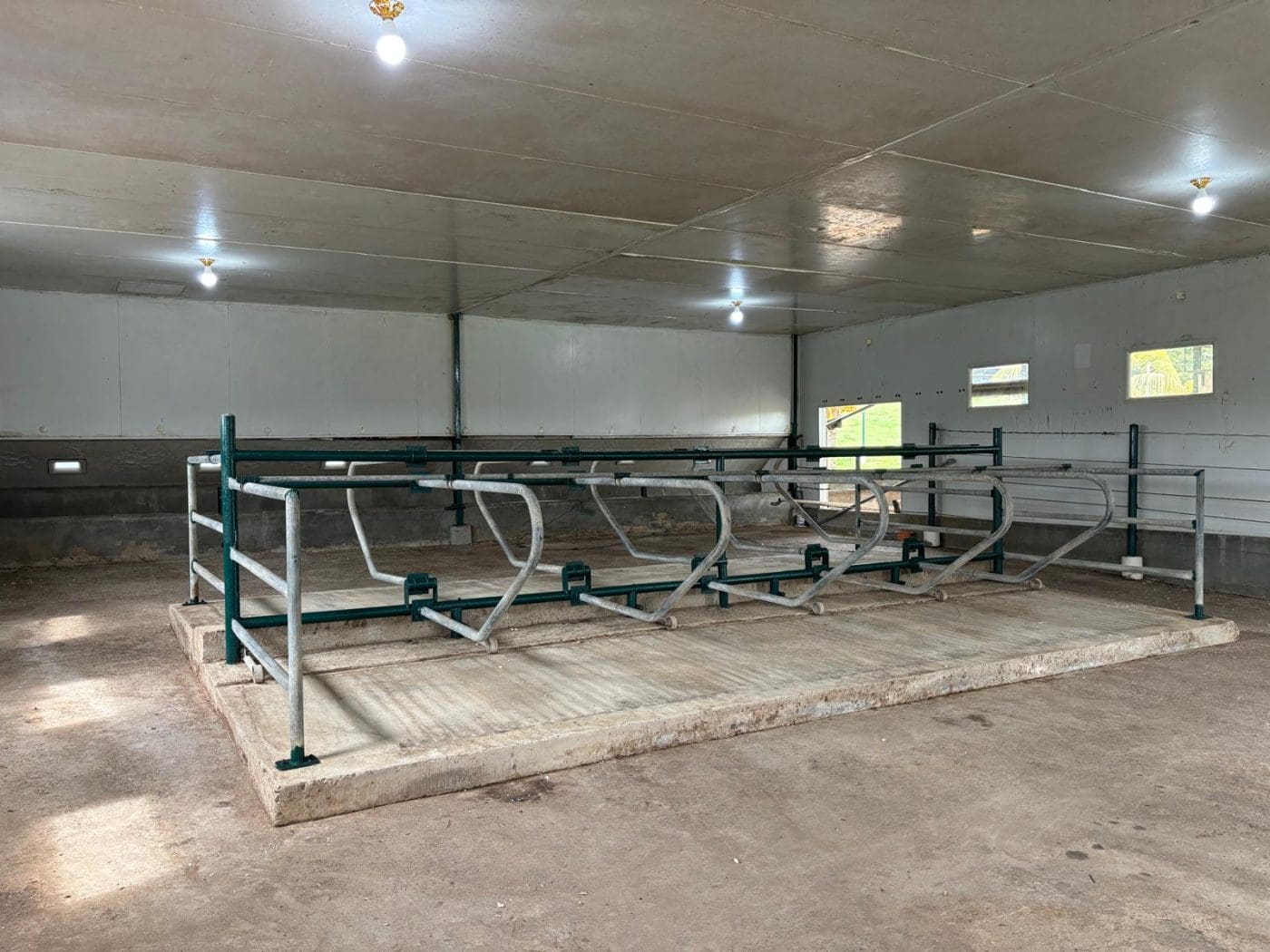It was a milk run with a difference when 50 high quality Australian dairy heifers were flown from Sydney to Jakarta today.
The pregnant Holstein-Friesian heifers are believed to be the first Australian dairy cattle exported to Indonesia specifically for new President Prabowo Subianto’s ambitious free lunch program to help fight childhood malnutrition.
President Prabowo pledged during his election campaign to lift cattle imports and in turn grow Indonesian dairy and beef production in order to provide free milk and meat-protein lunches to millions of Indonesian school students.
The heifers in today’s consignment were exported by Consolidated Pastoral Company (CPC) and its JJAA (Juang Jaya Abdi Alam) Indonesian joint venture partner Dicky Adiwoso, with the assistance of livestock exporting companies Austrex and Stockair.
After landing in Jakarta the heifers were due to be trucked to CPC’s feedlot and dairy in Lampung, a journey which also involves a short boat ride between the islands of Java and Sumatra.
CPC and JJAA have been shipping beef cattle from Australia to Indonesia for lot feeding for over 25 years. The joint venture partners have two feedlots in Indonesia which also include extensive cropping enterprises, with the entire operations directly employing 600 people and supporting the livelihoods of an estimated 12,500 local families.
CEO and Director Troy Setter said the company took its social responsibility very seriously. “We already supply more than five million Indonesian people a year with their beef and offal needs from cattle fed in Indonesia, and this creates a significant amount of employment in both Australia and Indonesia.”
Mr Setter said President Prabowo had been very clear in his determination to eliminate childhood stunting and malnutrition in Indonesia.
22 percent of children in the country suffer from stunting due to nutritional shortfalls from a lack of quality protein and total calories in their diet.
Mr Setter said JJAA operated a small modern dairy in Indonesia 10 years ago, however, at the time it was too early for the local fresh milk market that has developed in recent years.
“Now we have the President’s commitment to use fresh Indonesian milk as a key part of his commitment to reduce childhood stunting and malnutrition,” he said.
“There were significant learnings from our dairy program 10 years ago that are not wasted and that we will share with local farmers and governments and from the refurbishment from our dairy in Lampung and starting to milk again.”
JJAA owns a farmer and meat processor training facility on site that has been used to successfully train hundreds of Indonesian beef cattle farmers and meat processing workers.
A unique model has also enabled 100 local farmers to borrow pregnant Australian beef breeding cattle from which they share the progeny, providing them with income that is used to put their children through school, improve their farms and homes and to lift their living standards.
Indonesia’s Agriculture Ministry has stated the lunch programme, which also includes free meals for expectant mothers, will require 4.1 million tons of milk.
At present just 16 percent of dairy supply in the country is met from domestic fresh milk supply.
Per capita consumption of dairy in Indonesia is estimated at about 15 litres per year, which compares to Australia at over 300 litres per year.
To support the priority lunch program and 2027 self-sufficiency objectives, the Ministry of Agriculture has stated it is planning to import in the vicinity of two million beef and dairy cattle over five years from various countries including Australia, NZ and Brazil.
“These are the first dairy cattle to be imported into Indonesia since the new president’s plan was established,” Mr Setter said following today’s successful delivery of heifers to Indonesia.
“It is important that Australia takes the Indonesian President’s initiative very seriously. There are significant opportunities and responsibilities for Australia with our closest neighbour and strategic partner Indonesia.”

